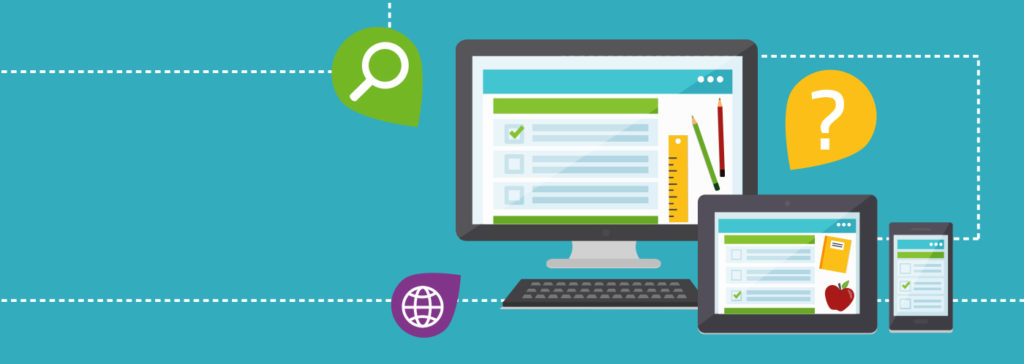 The DECODE project comparative survey aims to detect experiences, skills and training needs of teachers involved with the aim of detecting strengths, areas for improvement and development prospects, encouraged by the changes observed in the new educational paradigm, through a multi-dimensional and multi-perspective approach.
The DECODE project comparative survey aims to detect experiences, skills and training needs of teachers involved with the aim of detecting strengths, areas for improvement and development prospects, encouraged by the changes observed in the new educational paradigm, through a multi-dimensional and multi-perspective approach.
The comparative survey aims to reconstruct the digital innovation trend in educational agencies (meso level), supporting the accompanying demands of educational agencies.
Survey questions arise around four main issues:
- What is the daily practice of teaching in relation to the technological equipment provided by the school?
- How does the use of technologies and personal resources in daily professional practice and teaching work?
- What is the state of the experience and skills most widely used today among our teachers?
- What are the most relevant experiments carried out?
The questionnaire is organized around five thematic macro-sections with questions aimed at taking a socio-demographic profile, practices, attitudes and beliefs of teachers involved:
a) school data;
b) teachers profile;
c) teachers practice in ICT with a specific focus on the use of digital tools and technologies in teaching and learning process;
d) training needs of teachers, with a specific section dedicated to the self-assessment of the teacher’s digital skills according to the DigCompEdu Framework;
e) Personal opinion of the teacher in relation to the use of ICT in teaching and professional practices.
The online survey involved a total of 2652 teachers for any level or kind of school, so distributed: 366 from Finland, 693 from Catalonia, 937 Italia, 255 UK and 401 RO.

The sections “School data and teacher profile” contain personal data and a series of information on the context in which each teacher performs his/her activities: distribution of respondents by school type, teacher age range, gender, teaching area covered over the last three years, type of contract in the school, teaching role covered over the last three years, role as digital coordinator in the school.
The section “Teaching practice in ICT” section investigates the use of digital tools during the teaching-learning process. This section is intended to help us to understand the frequency which digital technologies are used in the classroom.
The section “Training needs of teachers” investigates achieved training and perceived training needs and accompaniment of teachers in relation to the use of digital technologies in professional practice. Within this section, there is the sub-area of investigation “Digital Competence of Educators (DigCompEdu)”. This section aims to evaluate the digital skills level of teachers, through a self-assessment of the digital skills according to the DigCompEdu framework, issued by the EU in 2018.
Finally, the section “Personal opinion” investigates the widespread opinions among teachers in relation to the use of ICT to know basic assumptions and values that guide their educational use of digital technologies.
The survey involved school teachers of all levels. It is likely that those who participated in the survey are self-selected towards a positive propensity to use the technologies because the contact was done via telematic means (social networks, institutional mailing lists and public contacts available on the network) and participation was done through surveys online. It is also necessary to read the data considering the specificities of each partner and the consequent possibility of reaching and involving a specific target of teachers.
The analysis, therefore, carried out can be considered a quantitative exploratory analysis. Therefore it has no claim of statistical representativeness. Moreover, these values should be interpreted with care since they are influenced by countries’ specific contexts and trade-offs. In education, there is often no simple most-or least-efficient model. For instance, the share of private expenditure on education must be read against other measures designed to mitigate inequities, such as loans and grants.
